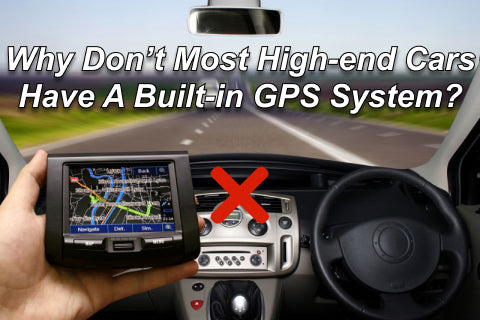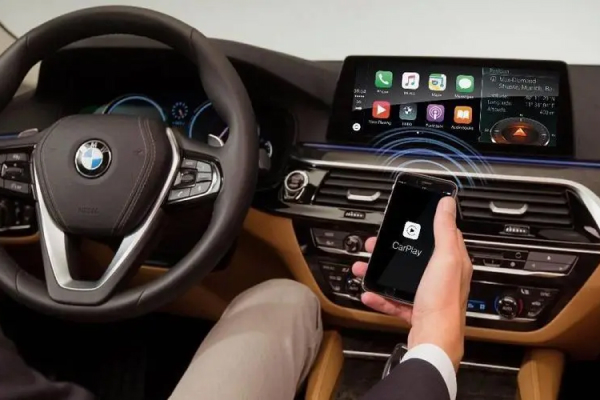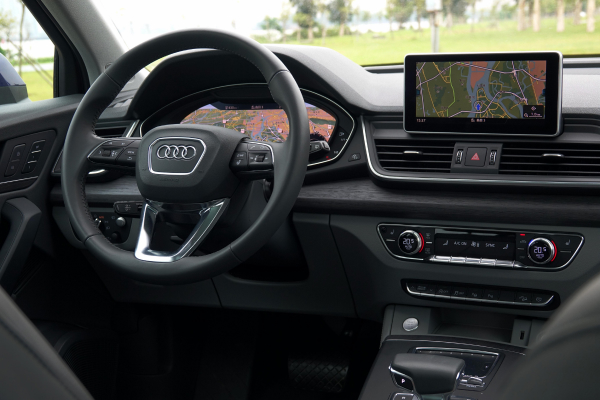
Why Don't Most High-end Cars Have A Built-in GPS System?
In an age where technology has become a staple in our daily lives, it's a curious phenomenon that many high-end cars forego a feature as seemingly essential as a built-in GPS navigation system. As we delve into the luxury automotive industry, we find that the absence of integrated GPS stereo head units is not an oversight but a deliberate choice influenced by several factors.
1. The Rise of Smartphone Integration
One of the most significant reasons for the scarcity of built-in GPS audio system for car in luxury vehicles is the prevalence and advancement of smartphones. With the majority of drivers owning a smartphone equipped with sophisticated navigation apps like Google Maps or Waze, the need for an in-car GPS system diminishes. High-end car manufacturers recognize this trend and instead focus on enhancing smartphone integration through systems like Apple CarPlay and Android Auto. These platforms allow drivers to mirror their preferred navigation apps onto the car's display, ensuring they have access to the most up-to-date maps and real-time traffic updates.
2. The Challenge of Keeping Maps Updated
Built-in GPS systems require frequent updates to remain accurate, as roads, routes, and points of interest are constantly changing. Updating an in-car car multimedia navigation system can be a cumbersome and sometimes costly process for owners, whereas smartphone apps receive updates automatically and at no extra charge. Luxury car manufacturers are aware of this inconvenience and may opt to forgo built-in systems to avoid customer dissatisfaction with outdated maps.

3. The Cost-Benefit Analysis
High-end cars come with a hefty price tag, and every feature added to the vehicle contributes to its cost. Manufacturers carefully consider the value that each component brings to the consumer. Given the widespread use of smartphones for navigation, the inclusion of a built-in GPS system may not be seen as a justifiable expense, especially if it could lead to higher costs for the consumer without providing a significant benefit over their existing smartphone capabilities.
4. Aesthetics and Dashboard Design

Luxury car brands often prioritize sleek and minimalist interior designs. A built-in GPS system can require additional buttons, screens, and controls that may disrupt the aesthetic flow of the dashboard. By utilizing smartphone integration, designers can maintain a clean and modern look while still offering drivers access to navigation through their personal devices.
5. Flexibility and Personal Preference
High-end car buyers value customization and the ability to tailor their vehicles to their specific tastes. By not locking in a particular GPS system, manufacturers give owners the freedom to choose their preferred navigation solution. This flexibility is in line with the bespoke nature of luxury cars, where personal preference and choice are paramount.
6. Data Privacy Concerns
In our data-driven world, privacy has become a significant concern for many consumers. Built-in GPS systems can collect and store data on driving habits and locations visited. Luxury car owners, who may be more privacy-conscious, might prefer to use their smartphones for navigation, as they have more control over their data and can choose the privacy settings that suit them best.
7.The Road Ahead
While it may seem counterintuitive at first glance, the trend away from built-in GPS systems in high-end cars is a response to the evolving technological landscape and consumer preferences. By embracing smartphone integration and the capabilities that come with it, luxury car manufacturers can offer a more personalized, up-to-date, and cost-effective navigation head unit solution that meets the high standards of their discerning clientele.
As technology continues to advance and integrate more deeply into our lives, the luxury automotive industry will likely continue to adapt, ensuring that their vehicles remain at the forefront of innovation, convenience, and user experience.
